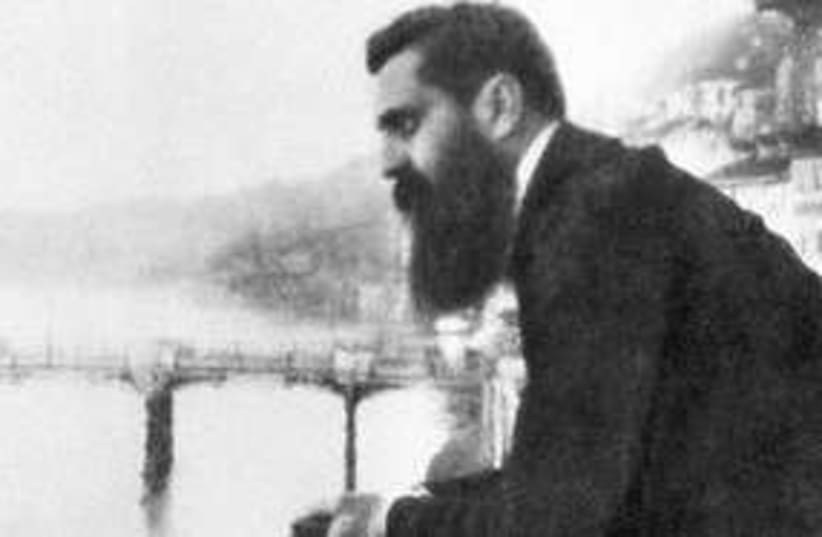The Orthodox parties comprise over a quarter of the delegates to the quadrennial Zionist Congress, largely because at the last election to the Zionist General Council, held in 2006 in Jewish communities throughout the world, Orthodox organizations such as the US-based OU and others organized to encourage their constituency to cast their votes.It is a sign, according to observers at the Congress, of modern Orthodoxy’s growing significance in the Jewish world, even as modern Orthodox political forces within Israel have become marginalized after failing for years to convince voters from that sector to vote according to religious affiliation.“All other political [factions], whether Likud, Kadima or others, draw from their Israeli electoral showing to give them strength [in the WZO],” Duvdevani told the Post shortly after his victory. “But for us, the significant numbers come from overseas.”But Duvdevani attributes his victory to another factor: the growing acceptance of modern Orthodox leaders in Israeli public life. “Israelis are now used to seeing religious-Zionists in meaningful positions of influence, whether in government, the army, education. It’s not strange to them anymore.”The elections also gave away other significant positions in important Zionist institutions.Duvdevani will share the leadership of the WZO with a new deputy chairman, the Conservative movement’s Dr. David Breakstone. His ascent to the position, after serving as head of the Department for Zionist Activities, marks the highest position yet reached by an oleh within the WZO.The active Settlement Division of the WZO will be headed by former MK Zvi Hendel, who represents the same Orthodox factions as Duvdevani.The hotly contested chairmanship of the Jewish National Fund will go to a Labor Party representative, though Labor’s own internal battle over the position means that no specific name can yet be attached to the position. Sources in the party believe the final candidate will be Agriculture Minister Shalom Simhon.Kadima caused some surprise during the elections by appointing MK Eli Aflalo to be the more junior co-chairman of the board of directors of JNF alongside the Labor candidate.Similarly, the deputy chairmanship of the Jewish Agency, who will serve under Sharansky, will go to the Meretz candidate Rany Trainin. The role has to be approved by the Jewish Agency before going into effect.The chairmanship of Keren Hayesod, the fundraising arm of the Zionist movement in Diaspora communities, has been given to the Likud, but no specific candidate has yet been named.
WZO gets 1st religious-Zionist chairman
Orthodox Jewry gains influence in Diaspora as Duvdevani voted in.

The Orthodox parties comprise over a quarter of the delegates to the quadrennial Zionist Congress, largely because at the last election to the Zionist General Council, held in 2006 in Jewish communities throughout the world, Orthodox organizations such as the US-based OU and others organized to encourage their constituency to cast their votes.It is a sign, according to observers at the Congress, of modern Orthodoxy’s growing significance in the Jewish world, even as modern Orthodox political forces within Israel have become marginalized after failing for years to convince voters from that sector to vote according to religious affiliation.“All other political [factions], whether Likud, Kadima or others, draw from their Israeli electoral showing to give them strength [in the WZO],” Duvdevani told the Post shortly after his victory. “But for us, the significant numbers come from overseas.”But Duvdevani attributes his victory to another factor: the growing acceptance of modern Orthodox leaders in Israeli public life. “Israelis are now used to seeing religious-Zionists in meaningful positions of influence, whether in government, the army, education. It’s not strange to them anymore.”The elections also gave away other significant positions in important Zionist institutions.Duvdevani will share the leadership of the WZO with a new deputy chairman, the Conservative movement’s Dr. David Breakstone. His ascent to the position, after serving as head of the Department for Zionist Activities, marks the highest position yet reached by an oleh within the WZO.The active Settlement Division of the WZO will be headed by former MK Zvi Hendel, who represents the same Orthodox factions as Duvdevani.The hotly contested chairmanship of the Jewish National Fund will go to a Labor Party representative, though Labor’s own internal battle over the position means that no specific name can yet be attached to the position. Sources in the party believe the final candidate will be Agriculture Minister Shalom Simhon.Kadima caused some surprise during the elections by appointing MK Eli Aflalo to be the more junior co-chairman of the board of directors of JNF alongside the Labor candidate.Similarly, the deputy chairmanship of the Jewish Agency, who will serve under Sharansky, will go to the Meretz candidate Rany Trainin. The role has to be approved by the Jewish Agency before going into effect.The chairmanship of Keren Hayesod, the fundraising arm of the Zionist movement in Diaspora communities, has been given to the Likud, but no specific candidate has yet been named.